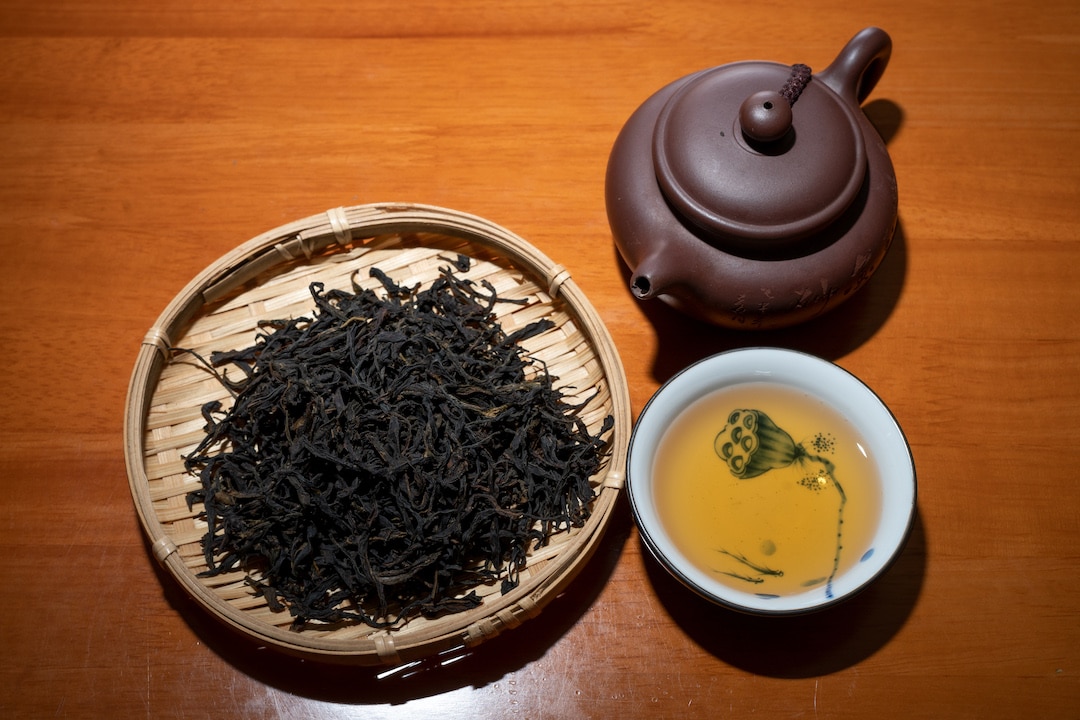Create a free profile to get unlimited access to exclusive videos, sweepstakes, and more!
Study finds elixir of life might be... black tea?
Sugar and cream?

There’s something alluring about being a vampire. Despite the obvious downsides, and there are many, it seems almost worth it to trade your mortal relationships — not to mention your soul — for everlasting life, youth and vitality. Although, the characters on Vampire Academy (now streaming on Peacock!) don’t make being undead look any less stressful than being alive. At least they have their health, such as it is.
The rest of us have to look elsewhere for ways to keep the reaper at bay a little while longer. Medicines, fad diets, tonics, potions, miracle pills, philosopher’s stones, fountains of youth and elixirs of life. There have been countless claims throughout our history purporting to be the secret to health and long life. And there are more than a few interesting avenues of research in modern times, from fish DNA to um … fecal transplants. Now, a new study adds another ingredient to our continually expanding elixir of life: the humble flavonoid.
RELATED: Midnight snacks might be shortening your life
According to a new study published in the journal Arteriosclerosis, Thrombosis, and Vascular Biology, higher intake of flavonoids in the diet is associated with lower levels of calcification in the aorta. Scientists and doctors have previously confirmed the amount of abdominal aortic calcification — otherwise known as AAC — is a strong predictor of vascular disease events like heart attack, stroke and even dementia, in the future.
Previous research has also shown that regular consumption of apples is associated with lower levels of AAC. It appears there’s at least some truth to the old adage that an apple a day keeps the doctor away. Despite the connection, it was unclear precisely what apples were doing in the body to help keep aortic calcification at bay, but researchers had a clue. Apples are a common dietary source of flavonoids, a collection of roughly 5,000 compounds commonly found in plants. They’ve been shown to have anti-inflammatory, antidiabetic, anticancer and neuroprotective abilities, just to name a few.
To see how total flavonoid intake might impact overall health, researchers gathered a group of 881 elderly females, with an average age of 80 years. Total flavonoid intake was tabulated through the use of food frequency questionnaires. Essentially, researchers asked them all what they ate, drank, and how often. Then they measured the level of aortic calcification through the use of lateral lumbar spine images.
They found that people with higher amounts of flavonoids in their diet had lower levels of AAC. Significantly lower. People with high levels over overall flavonoid intake had between 36% and 39% lower chances of having extensive AAC.
In addition to overall flavonoid intake, researchers also looked at the dietary source of the flavonoids to see if that made a difference. While overall flavonoid intake seemed to be most important, the study did find that some sources are better than others, or at least do the most heavy lifting. Common dietary sources of flavonoids include leafy vegetables, onions, apples, berries, cherries, soybeans and citrus fruits. But tea and wine dominate as the primary sources for most people, according to an unrelated study published in the Iranian Journal of Basic Medical Sciences.
That held true among the study participants as well. Black tea was the primary source of flavonoids among the 881 individuals and that appeared to be a solid choice. Tea drinkers had between 16% and 42% lower odds of extensive AAC than non-tea drinkers.
That said, if tea isn’t your cup of … well, you know, you can get your flavonoids from those other sources and you’re likely to still get the benefit, with a few notable exceptions. Some common sources of flavonoids including fruit juice, red wine, and chocolate did not exhibit a beneficial association with aortic calcification. If you're more of a coffee drinker, it might keep you alive longer too, for a totally different and semi-mysterious reason.
The mystery of precisely what is going on when you eat apples or drink tea continues. That’s usually the way things go with science. You get a few answers and a lot more questions, but one thing is clear. The next time a kid invites you to a tea party, consider saying yes. They’re just trying to keep you young, in more ways than one.


























